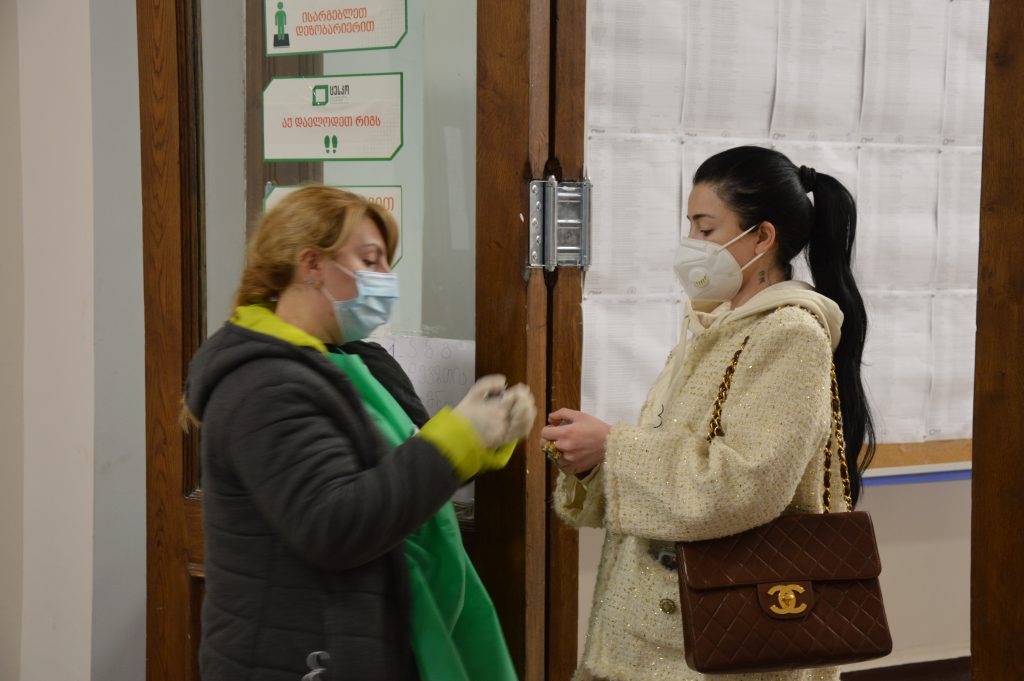In a joint statement on the municipal runoffs, 17 local civil society organizations said irregularities identified by local and international observers may have affected the election results in municipalities with narrowly held victories.
The CSOs – among them key election watchdogs Transparency International-Georgia and International Society for Fair Elections and Democracy – stressed that reported violations during the pre-election period, Election Day and the vote counting had “unequivocally negative impact on the expression of voters’ free will and public confidence in the electoral process and election results.”
Continuing on the irregularities, the third sector stressed it is “unfortunate” that misuse of administrative resources, politically motivated dismissals, pressuring and intimidation of civil servants was still topical during the elections..
The CSOs also highlighted the “marked financial advantage” of the ruling party, achieved among others through “potentially corruption schemes” and frequent “lack of response” by law enforcement agencies to election violations. “In most cases, the investigations which they launch proactively are electorally motivated and aim to emotionally manipulate voters on the election day.”
The statement also said actions of individual election administration officials “raise valid questions about their political neutrality.”
“Unfortunately, public institutions are not trying to create an equal electoral environment for political parties,” the CSOs stressed, adding that “the line between the ruling party and the government is effectively non-existent.”
With all branches of the government, including the court, under the ruling Georgian Dream party’s “political control,” the CSOs asserted “it becomes increasingly difficult” to seek justice on election violations through legal mechanisms and to objectively determine the degree of their influence on the electoral process.
The joint statement stressed the ruling party has not demonstrated a real will to share power during Georgia’s political crises, citing GD’s withdrawal from the EU-mediated April 19 deal as an example.
Statements made by GD leaders in the run-up to the runoffs showed the ruling party aims not to allow any state institution to “leave their political control,” the CSOs highlighted, adding that the quality and results of the local elections “are an explicit confirmation of this declared goal.”
The organizations raised the alarm that the elections “of low democratic standards” might deepen existing polarization in the country and lead to civil confrontations.
“We call on the ruling party to change the existing policy and take concrete steps to unite the society, instead of dividing them,” the CSOs said in the joint statement.
Besides TI Georgia and ISFED, the statement is signed by Open Society Georgia Foundation, UN Association of Georgia, Georgian Institute of Politics, Social Justice Center, Media Development Foundation, Economic Policy Research Center, Georgian Democracy Initiative, Partnership for Human Rights, Sapari, Georgia’s Reforms Associates, Green Alternative, Human Rights Center, Society and Banks, Center Empathy and Atlantic Council of Georgia.
Also Read:
- TI, ISFED Say Election Results Possibly Affected by Violations
- EU Ambassador Issues Starkly-Worded Statement on Georgia Runoffs
- Int’l Observers: Polls Well-Run, Marred by Polarization, Negative Rhetoric
- U.S. Says Widespread Violations Negatively Affected Free Vote
This post is also available in: ქართული (Georgian) Русский (Russian)

